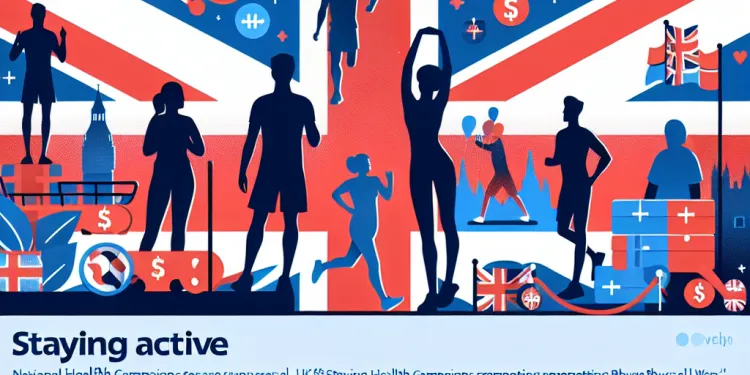
Find Help
More Items From Ergsy search
-
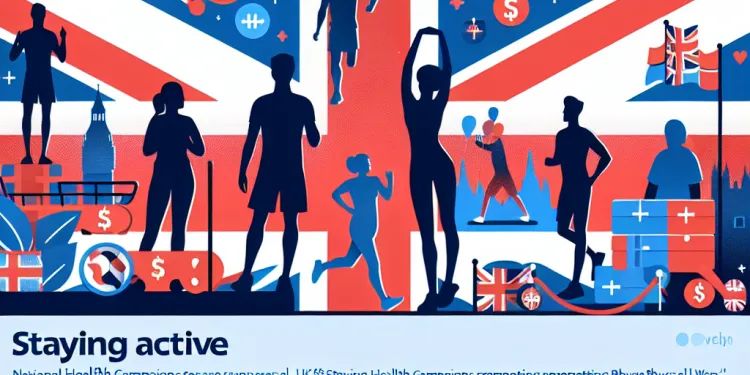
Staying Active: National Health Campaigns Promoting Physical Well-being
Relevance: 100%
-

How important is physical activity in preventing obesity?
Relevance: 37%
-

How important is physical activity for older adults picking new hobbies?
Relevance: 35%
-

Can community helpers access physical health resources?
Relevance: 32%
-

What are some physical health effects of loneliness?
Relevance: 30%
-

Have there been any government campaigns to increase vaccination rates?
Relevance: 29%
-

Essential Tips for Mental Health and Well-Being Amidst Rising Living Costs
Relevance: 29%
-

The Benefits of Family Activities
Relevance: 28%
-

Will I be able to engage in physical exercise?
Relevance: 26%
-

How do health officials monitor H3N2 activity?
Relevance: 26%
-
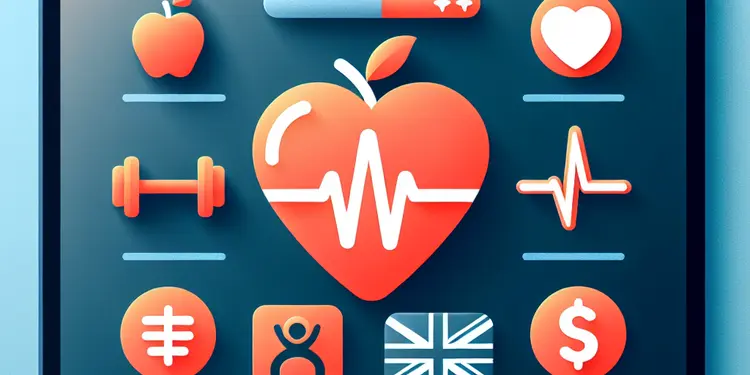
What is the impact of eating disorders on physical health?
Relevance: 25%
-

Nationwide Flu Vaccination Campaign Targets Vulnerable Populations
Relevance: 25%
-

Can you participate in sports or physical activities with a stoma bag?
Relevance: 25%
-

Campaigners Urge Review of Child Benefit Rates in Light of Inflation
Relevance: 25%
-

Can binge drinking affect physical health?
Relevance: 24%
-

Does physical exercise help people with CFS?
Relevance: 23%
-
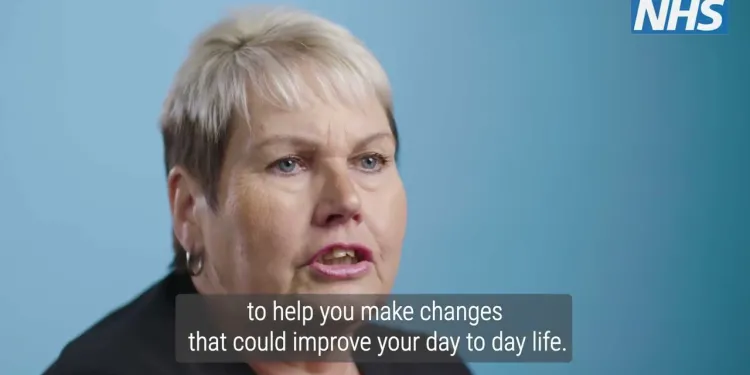
Social Prescribing Link Workers are part of new health and wellbeing services in NHS surgeries
Relevance: 23%
-

Are UK's Post-Pandemic Work Habits Harming Mental Wellbeing?
Relevance: 23%
-

Social Services and Well-being (Wales) Act: Assessments
Relevance: 22%
-

Can physical exertion trigger a heart attack?
Relevance: 22%
-

Is it better to stay in a relationship for the sake of not being alone?
Relevance: 22%
-

NHS Pensions | How to Claim? | Ill Health, Active & Deferred Members
Relevance: 22%
-

Are UK's Post-Pandemic Work Habits Harming Mental Wellbeing?
Relevance: 22%
-

Can health-related anxiety cause physical symptoms?
Relevance: 22%
-

How Rising Living Costs Are Impacting Family Wellbeing
Relevance: 21%
-

How is the revenue from the sugar tax used?
Relevance: 21%
-

What is the National Trust?
Relevance: 21%
-

What is the work environment like at the National Trust?
Relevance: 21%
-

Can exercise improve gut health and support the aging process?
Relevance: 21%
-

What is gut health?
Relevance: 21%
-

Can physical symptoms be linked to relationship-induced depression?
Relevance: 21%
-
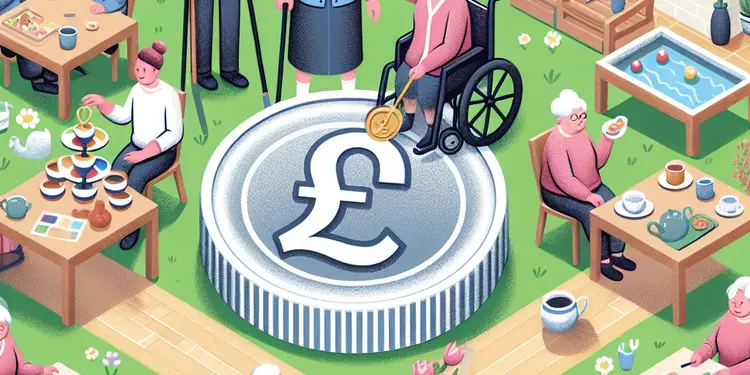
Are activities provided for residents in care homes?
Relevance: 21%
-

Can staying in a car during a heatwave be dangerous?
Relevance: 21%
-

What is the new UK National Living Wage for 2026?
Relevance: 20%
-

Tackling Youth Mental Health: Community Initiatives and Solutions
Relevance: 20%
-

Are apprentices entitled to the National Living Wage?
Relevance: 20%
-

UK national living wage increase 2026
Relevance: 20%
-

Is there a change in National Insurance rates for 2026?
Relevance: 20%
-

How does the sugar tax align with public health strategies?
Relevance: 20%
-

Are there seasonal jobs with the National Trust?
Relevance: 19%
Staying Active: National Health Campaigns Promoting Physical Well-being
Introduction to Physical Well-being
Maintaining physical well-being is vital for a healthy lifestyle. In the United Kingdom, national health campaigns play a crucial role in educating and encouraging people to adopt active lifestyles. These campaigns are designed to address sedentary habits and promote various forms of physical activity, from walking and jogging to home workouts and sports.
Change4Life Initiative
One of the most well-known campaigns in the UK is Change4Life. Launched by Public Health England, this initiative aims to inspire families to make healthier choices. The campaign provides resources and tools to help people incorporate more activity into their daily lives. Whether it’s through '10 Minute Shake Up' activities inspired by Disney characters or tips for reducing screen time, Change4Life is tailored to be accessible and engaging for all age groups.
Active 10
The Active 10 campaign focuses on the benefits of brisk walking. The goal is to encourage adults to start walking for just 10 minutes each day. Supported by mobile apps that track progress and provide motivational tips, Active 10 is designed to help individuals gradually build up their fitness levels. This initiative underscores that even small amounts of regular physical activity can significantly impact overall health.
This Girl Can
This Girl Can is another influential campaign, aimed particularly at women and girls. Created by Sport England, it addresses the gender gap in physical activity participation. By showcasing real women of all shapes, sizes, and abilities being active, the campaign seeks to break down barriers and inspire others to overcome the fear of judgment and join in. Whether it’s swimming, jogging, dancing, or gym activities, This Girl Can celebrates all forms of movement.
Quick and Easy Fitness Ideas
National health campaigns often provide quick and easy fitness ideas that fit into busy schedules. Examples include desk exercises, home workout routines using household items, and short, guided exercise videos. These resources make it easier for people to stay active without needing gym memberships or special equipment.
Conclusion
National health campaigns in the UK are pivotal in promoting physical well-being among its citizens. By providing practical advice, motivational tools, and inclusive messaging, initiatives like Change4Life, Active 10, and This Girl Can help people of all ages and abilities stay active. Embracing these resources can lead to healthier lifestyles and improved public health outcomes across the nation.
Staying Active: National Health Campaigns Promoting Being Healthy
What Is Being Physically Healthy?
Being physically healthy means moving your body to stay strong and well. In the UK, there are big plans to help everyone learn about staying active. These plans teach people how to move more and sit less. They show ways to be active, like walking, running, exercising at home, or playing sports.
Change4Life Plan
Change4Life is a well-known plan in the UK. It helps families make healthier choices. Change4Life gives tools and ideas to help people move more every day. There are fun activities like '10 Minute Shake Up' with Disney characters and ideas to use screens less. Change4Life makes being active fun and easy for everyone.
Active 10
Active 10 is a plan that says walking quickly for 10 minutes is helpful. It encourages adults to walk for just 10 minutes each day. You can use phone apps to see how you are doing and get tips to keep going. Even a little walking can make you healthier.
This Girl Can
This Girl Can is a plan to help girls and women be active. It is made by Sport England. It shows real women being active, no matter their shape or size. This plan wants to help everyone feel brave and not afraid to join in. Whether you like swimming, running, dancing, or going to the gym, This Girl Can celebrates all of it.
Easy Ideas to Move More
These plans have easy ways to fit exercise into a busy day. You can try exercises at your desk, workouts at home using things like water bottles, or watch short exercise videos. These ideas help you stay active without needing to go to a gym.
Conclusion
The UK's national health plans help people be healthier by being more active. They give good advice and fun ways to keep moving. Plans like Change4Life, Active 10, and This Girl Can help people move more, making everyone healthier and happier.
Frequently Asked Questions
What are the benefits of staying active?
Staying active improves cardiovascular health, strengthens muscles and bones, enhances mental well-being, and helps manage weight.
How much physical activity is recommended for adults in the UK?
Public Health England recommends that adults should aim for at least 150 minutes of moderate-intensity activity or 75 minutes of vigorous-intensity activity per week.
What types of activities count as moderate-intensity?
Moderate-intensity activities include brisk walking, cycling, dancing, gardening, and water aerobics.
What are examples of vigorous-intensity activities?
Vigorous-intensity activities include running, swimming, aerobics, fast cycling, and competitive sports like football or rugby.
Are there specific guidelines for physical activity for children?
Yes, children and young people aged 5-18 should engage in at least 60 minutes of moderate to vigorous-intensity physical activity every day.
Can older adults benefit from physical activity?
Absolutely! Physical activity helps older adults maintain independence, improve balance and coordination, and boost their mental health.
What are the risks of a sedentary lifestyle?
A sedentary lifestyle can lead to obesity, cardiovascular disease, type 2 diabetes, certain cancers, and mental health issues like depression and anxiety.
How can I stay active if I have a busy schedule?
Try incorporating physical activity into your daily routines, such as walking or cycling to work, taking stairs instead of lifts, or doing short workout sessions.
Do I need special equipment to stay active?
Not necessarily. Many activities like walking, running, and body-weight exercises require no special equipment. However, equipment can help for specific activities like cycling or weight training.
What are some national health campaigns promoting physical well-being in the UK?
Campaigns like 'Change4Life,' 'One You,' and 'We Are Undefeatable' promote physical well-being and encourage people to be more active.
How can I stay motivated to stay active?
Setting realistic goals, finding an activity you enjoy, and seeking support from friends, family, or fitness communities can help you stay motivated.
Are there any resources for people with disabilities to stay active?
Yes, initiatives like 'Parasport' provide information on accessible activities and sports for people with disabilities.
Can physical activity improve mental health?
Yes, regular physical activity can reduce symptoms of depression and anxiety, improve mood, and boost overall mental well-being.
Is it important to warm up before physical activity?
Warming up prepares your body for exercise, reduces the risk of injury, and can improve performance. It's recommended to do a 5-10 minute warm-up before engaging in physical activity.
What should I do if I experience pain while exercising?
If you experience pain while exercising, it's important to stop and rest. If the pain persists, seek medical advice to ensure you don't have a serious injury.
Why is moving your body good for you?
Moving and playing are very good for your body and mind. Here is why:
- Healthy Body: Moving helps you have strong muscles and bones. It keeps your heart healthy too.
- Happy Feelings: Playing and moving around can make you feel happier and less worried.
- Good Sleep: When you are active, you sleep better at night.
- Fun Time: Moving around can be fun! You can play games and make friends.
Here are some ways to move more:
- Go for a walk or run with a friend.
- Dance to your favorite music.
- Join a sports team or play with your family.
Being active is good for your heart. It makes your muscles and bones strong. It helps you feel happy and keeps your body at a healthy weight.
How much exercise should adults do in the UK?
Adults in the UK should try to be active every day. Here is a simple way to know how much:
- Walk fast or do something similar for 150 minutes each week. You can break this up into smaller parts, like 30 minutes on 5 days.
- Try to do exercises to make your muscles strong at least twice a week. This can be things like lifting weights or yoga.
Being active helps you stay healthy and feel good.
If you find it hard to keep track, you can use tools like a calendar or a fitness app to remind you.
Public Health England says adults should try to do 150 minutes of exercise that is not too hard every week. Or they can do 75 minutes of exercise that is hard.
What are moderate exercises?
Moderate exercises make you breathe a bit faster but you can still talk. They are good for your heart and body. Here are some examples:
- Walking fast
- Riding a bike on flat ground
- Playing games like tag or hopscotch
You can use a tool like a step counter to see how active you are. Ask a friend or grown-up to join you. It's more fun!
Fun ways to move your body are walking fast, riding a bike, dancing, planting in the garden, and exercising in the pool.
What are examples of very hard exercises?
Here are some examples of exercises that are very hard:
- Running fast
- Swimming quickly
- Biking up a hill
- Playing soccer or basketball
These exercises make you breathe fast and your heart beat quickly. It's important to take breaks and drink water.
If reading is hard, try using pictures or videos to learn about these exercises. Listening to audio descriptions might help too.
Hard exercises are like running, swimming, dancing fast, riding a bike quickly, and playing sports like football or rugby.
What exercises should kids do?
It's good for children to move and play every day.
Kids should try to be active for about 1 hour each day. This can be playing games, running, or riding a bike.
Children can also learn sports at school or in sports clubs.
If kids need help to be active, parents can join them in fun activities.
Yes, children and young people who are 5 to 18 years old should do at least 60 minutes of exercise every day. This exercise should make them a bit hot and sweaty.
Can older adults get help from exercise?
Yes! Exercise helps older people stay independent. It makes them better at balancing and moving. It also makes them feel happier.
What happens if you sit too much?
Sitting too much can be bad for your health. It can make you feel tired and sore. It can also lead to health problems like heart disease or diabetes. Try to move around more, like walking or stretching. Using a timer or asking for help from a friend can remind you to get up and move.
Sitting too much can make you unhealthy. It can make you gain weight and could lead to heart and blood problems, diabetes, and some types of cancer. It can also make you feel sad or worried.
How can I exercise if I am very busy?
It is important to move your body, even when you are busy.
Here are some easy ways to stay active:
- Take short walks. You can walk around your home or outside.
- Use the stairs instead of the lift.
- Do simple exercises at your desk, like stretching your arms.
- Play active games with your friends or family.
You can also use a timer to remind you to move every hour.
Remember, doing a little bit is better than doing nothing at all. Have fun!
Try to do exercise in your daily life. You can walk or ride a bike to work. Take the stairs, not the lift. Do short workouts.
Here are some tips to help:
- Make a plan for your exercise each day.
- Set small goals and celebrate when you reach them.
- Ask a friend to exercise with you.
Do I need special things to stay active?
No, you don’t need special things to stay active. You can use everyday things like:
- Walking in the park
- Running outside
- Climbing stairs
- Playing in the playground
You can also get help to make it fun:
- Join a group like a sports team
- Use apps to track your steps
- Watch exercise videos online
You don't always need special things to exercise. You can walk, run, or do exercises using your own body without any special tools. But for some activities like riding a bike or lifting weights, special equipment can be helpful.
If you find reading hard, try using pictures or videos to understand more about exercise. Asking someone to read with you can also help. You can also use apps or websites to show you how to do exercises.
What are some health campaigns in the UK that help people be healthy and active?
There are groups that help us stay healthy and strong. 'Change4Life,' 'One You,' and 'We Are Undefeatable' are some of these groups. They want us to move our bodies and be more active.
How can I get excited to keep moving?
Staying active means doing things like walking, dancing, or playing. It is important for our bodies and minds.
Here are some tips to help you stay excited:
- Set small goals: Try to do a little each day. You can walk for 10 minutes. Then, try to do more next time.
- Find a friend: Ask someone to join you. It can be more fun when you are not alone.
- Make a plan: Write down when you will be active. It helps to have a plan.
- Listen to music: Play your favorite songs. Music can help make moving more fun!
- Use reminders: Set a reminder on your phone. It will help you remember to be active every day.
You can try these tips. Remember, doing a little is better than doing nothing. Keep going, and you will feel good!
Set goals that you can reach. Find something fun to do. Ask friends, family, or groups to help you stay excited and keep going.
Are there things to help people with disabilities stay active?
Yes, there are things that can help!
Here are some ideas:
- Look for special exercise groups for people with disabilities.
- Try using videos that show easy exercises.
- Use tools like wheelchairs or walkers to help you move.
- Ask a physical therapist for advice.
It's important to stay active. It helps you feel good and stay healthy!
Yes, 'Parasport' is a program that helps people with disabilities find sports and activities they can do.
Can exercise help you feel better?
Exercise means moving your body. It can be fun, like playing games or sports. Moving your body can help your brain feel good too.
If you feel sad, worried, or stressed, doing some exercise can help make those feelings get better. It helps make your brain strong and happy.
Ways to move your body:
- Go for a walk with a friend
- Ride a bike
- Dance to music
- Play a sport or a game
Try to do a little bit each day. Every bit helps!
Using tools like reminder apps on a phone or asking someone to join you can make it easier to remember and have fun.
Yes, doing exercise regularly can help you feel less sad or worried. It can make you feel happier and help keep your mind healthy.
Should you warm up before you exercise?
Yes! Warming up is very important.
Here is why warming up helps:
- It gets your muscles ready.
- It makes your heart beat faster, but in a good way.
- It helps you not get hurt.
Try these warming up tips:
- Start with easy moves like walking or gentle stretching.
- Do it for 5 to 10 minutes.
Warming up makes exercise safer and more fun!
Warming up helps your body get ready for exercise. It can stop you from getting hurt and help you do better. It’s a good idea to warm up for 5-10 minutes before you start doing exercise.
What to do if you feel pain when you exercise?
If you feel hurt when you exercise, stop what you are doing.
Here are steps to help you:
- Breathe: Take deep breaths to calm down.
- Rest: Sit down and relax until you feel okay.
- Tell someone: Find an adult or trainer and tell them about the pain.
- Ice pack: If a part of your body hurts, you can put an ice pack on it.
- Slow and easy: Next time, start slow and don’t push too hard.
Ask for help from a doctor if the pain doesn’t go away.
If you feel hurt when you are exercising, you need to stop and take a break. If the pain keeps going, talk to a doctor. This is to make sure you are not badly hurt.
Useful Links
This website offers general information and is not a substitute for professional advice.
Always seek guidance from qualified professionals.
If you have any medical concerns or need urgent help, contact a healthcare professional or emergency services immediately.
Some of this content was generated with AI assistance. We’ve done our best to keep it accurate, helpful, and human-friendly.
- Ergsy carfully checks the information in the videos we provide here.
- Videos shown by Youtube after a video has completed, have NOT been reviewed by ERGSY.
- To view, click the arrow in centre of video.
- Most of the videos you find here will have subtitles and/or closed captions available.
- You may need to turn these on, and choose your preferred language.
- Go to the video you'd like to watch.
- If closed captions (CC) are available, settings will be visible on the bottom right of the video player.
- To turn on Captions, click settings .
- To turn off Captions, click settings again.
More Items From Ergsy search
-

Staying Active: National Health Campaigns Promoting Physical Well-being
Relevance: 100%
-

How important is physical activity in preventing obesity?
Relevance: 37%
-

How important is physical activity for older adults picking new hobbies?
Relevance: 35%
-

Can community helpers access physical health resources?
Relevance: 32%
-

What are some physical health effects of loneliness?
Relevance: 30%
-

Have there been any government campaigns to increase vaccination rates?
Relevance: 29%
-

Essential Tips for Mental Health and Well-Being Amidst Rising Living Costs
Relevance: 29%
-

The Benefits of Family Activities
Relevance: 28%
-

Will I be able to engage in physical exercise?
Relevance: 26%
-

How do health officials monitor H3N2 activity?
Relevance: 26%
-

What is the impact of eating disorders on physical health?
Relevance: 25%
-

Nationwide Flu Vaccination Campaign Targets Vulnerable Populations
Relevance: 25%
-

Can you participate in sports or physical activities with a stoma bag?
Relevance: 25%
-

Campaigners Urge Review of Child Benefit Rates in Light of Inflation
Relevance: 25%
-

Can binge drinking affect physical health?
Relevance: 24%
-

Does physical exercise help people with CFS?
Relevance: 23%
-

Social Prescribing Link Workers are part of new health and wellbeing services in NHS surgeries
Relevance: 23%
-

Are UK's Post-Pandemic Work Habits Harming Mental Wellbeing?
Relevance: 23%
-

Social Services and Well-being (Wales) Act: Assessments
Relevance: 22%
-

Can physical exertion trigger a heart attack?
Relevance: 22%
-

Is it better to stay in a relationship for the sake of not being alone?
Relevance: 22%
-

NHS Pensions | How to Claim? | Ill Health, Active & Deferred Members
Relevance: 22%
-

Are UK's Post-Pandemic Work Habits Harming Mental Wellbeing?
Relevance: 22%
-

Can health-related anxiety cause physical symptoms?
Relevance: 22%
-

How Rising Living Costs Are Impacting Family Wellbeing
Relevance: 21%
-

How is the revenue from the sugar tax used?
Relevance: 21%
-

What is the National Trust?
Relevance: 21%
-

What is the work environment like at the National Trust?
Relevance: 21%
-

Can exercise improve gut health and support the aging process?
Relevance: 21%
-

What is gut health?
Relevance: 21%
-

Can physical symptoms be linked to relationship-induced depression?
Relevance: 21%
-

Are activities provided for residents in care homes?
Relevance: 21%
-

Can staying in a car during a heatwave be dangerous?
Relevance: 21%
-

What is the new UK National Living Wage for 2026?
Relevance: 20%
-

Tackling Youth Mental Health: Community Initiatives and Solutions
Relevance: 20%
-

Are apprentices entitled to the National Living Wage?
Relevance: 20%
-

UK national living wage increase 2026
Relevance: 20%
-

Is there a change in National Insurance rates for 2026?
Relevance: 20%
-

How does the sugar tax align with public health strategies?
Relevance: 20%
-

Are there seasonal jobs with the National Trust?
Relevance: 19%


